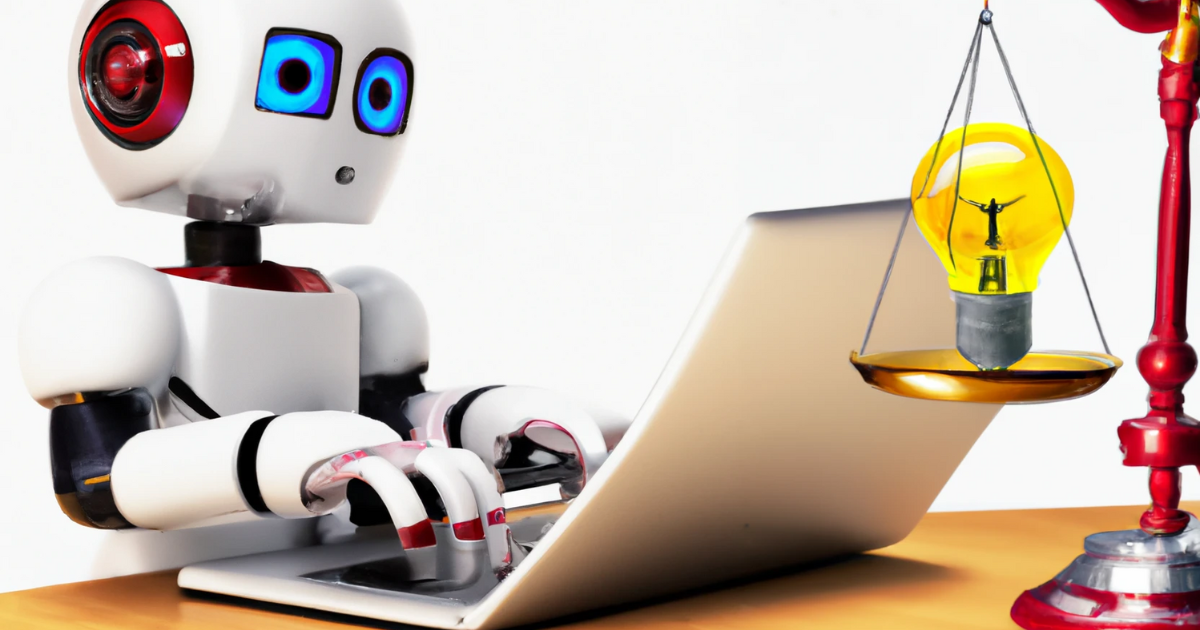Exploring the Legal Minefield of ChatGPT and Intellectual Property Rights
As next-generation AI chatbots (like OpenAI's ChatGPT) become increasingly sophisticated, they are raising important questions about intellectual property (IP) law and its application to these new technologies. In particular, there are concerns around the ownership of the content generated by AI chatbots, and how this content should be protected and managed.
One key issue is the extent to which AI chatbots can be considered “creators” of original content for purposes of copyright law. As these systems become more advanced, they are able to generate text, images, and other forms of content that are indistinguishable from human-generated content. This raises questions about who should be considered the “author” of this content for copyright purposes, and whether such content should be entitled to the same IP protections as human creators.
In general, copyrighted materials are created by human authors and are “original works of authorship” that are fixed in a tangible form. This means that the work must be expressed in a physical or digital form, such as a book, a painting, or a computer file, in order to be protected by copyright law.
In the context of AI chatbots, it is unclear whether the content generated by these systems would be considered original and fixed in a tangible form, and therefore eligible for copyright protection. Some may argue that the AI is merely a tool or instrument that is used by a human author to create the work, and therefore the human author should be considered the creator and owner of the work. Others may argue that the AI itself should be considered the creator and owner of the work, given its ability to generate original content without human intervention.
It is difficult to say for certain whether the content generated by AI would be eligible for copyright protection under existing law. However, it is clear that the emergence of these technologies raises important questions and challenges that will need to be addressed in order to ensure that IP rights are respected and protected.
Another issue is the potential for IP infringement by AI chatbots. As these systems become more widely used, there is a risk that they may inadvertently or intentionally generate content that infringes on the IP rights of others or that is duplicative of other AI-generated content. For example, an AI chatbot that generates text or images based on a pre-existing work without permission could be considered infringing.
Overall, the emergence of next-generation AI tools raises important IP concerns that will need to be addressed in order to ensure that these technologies are used ethically and in a way that respects the rights of human creators. Technologists, lawyers and policymakers will need to carefully consider these issues and work together to develop appropriate legal frameworks for the use of AI in the creation of original content.
The author generated this text in part with GPT-3, OpenAI’s large-scale language-generation model. Upon generating draft language, the author reviewed, edited, and revised the language to their own liking and takes ultimate responsibility for the content of this publication. The author also generated the title imagery in part with Dall-e, a deep learning model developed by OpenAI to generate digital images from natural language descriptions, called "prompts."
DISCLAIMER: This summary is not legal advice and does not create any attorney-client relationship. This summary does not provide a definitive legal opinion for any factual situation. Before the firm can provide legal advice or opinion to any person or entity, the specific facts at issue must be reviewed by the firm. Before an attorney-client relationship is formed, the firm must have a signed engagement letter with a client setting forth the Firm’s scope and terms of representation. The information contained herein is based upon the law at the time of publication.

